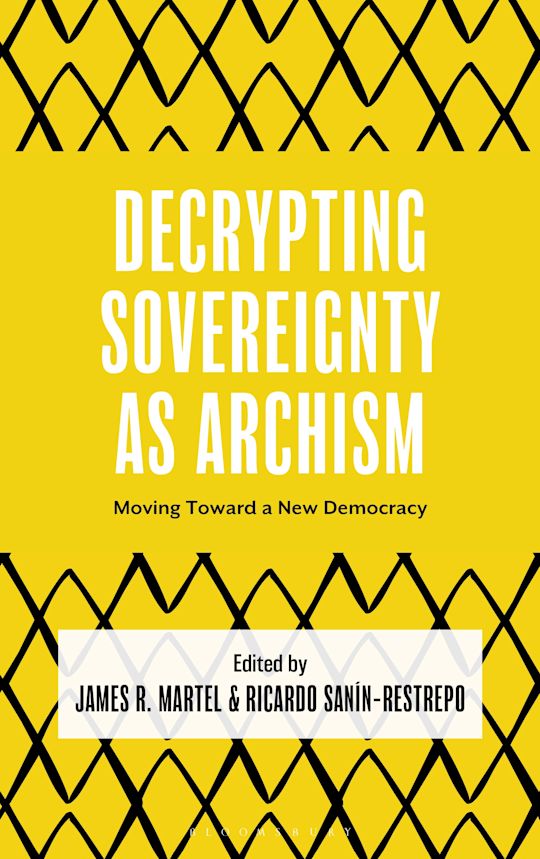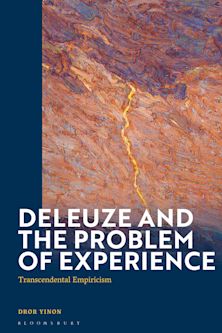- Home
- ACADEMIC
- Philosophy
- Social and Political Philosophy
- Decrypting Sovereignty as Archism
Decrypting Sovereignty as Archism
Moving Toward a New Democracy
Decrypting Sovereignty as Archism
Moving Toward a New Democracy
You must sign in to add this item to your wishlist. Please sign in or create an account
Description
Using the theory of encryption of power in a tight connection with the theory of archism sheds light on sovereignty and thus politics.
Archism is that prevailing form of power that seeks to go nameless insofar as it claims to be ubiquitous and just how politics is. The theory of encryption of power explains how the use of language monopolizes and hides power, preventing access to it through the denial and neutralization of differences based on class, race, and gender. Archism and the theory of encryption of power are intimately linked: one potentializes and sharpens the other to bring together an especially pernicious form of sovereignty and its role in our world. Coloniality exists because it encrypts power. The encryption of power hides the ubiquity of archism and, in this way, preserves and enhances its power. A transcendent model, one that poses as ordinary, dictates from a vanishing point of invisibility-outside language and any relation-the conditions to which every and any form of beingness must abide in order to be and thus to exercise power.
This collection, edited by James R. Martel and Ricardo Sanín-Restrepo, explores these questions in parallel with decolonial theory and critical and subaltern studies, using conceptual tools that allow us to think difference without the interference of the void of normality, a position from where the possible may come to be. In the name of the people, the people are made vulnerable to dispossession and exclusion; in the name of democracy, democracy is undermined and potentially destroyed. Theorizing encryption challenges the linkages between liberalism and colonialism, capitalism and sovereignty, constitution and economy, and their claims of necessity.
Table of Contents
Presentation of the Book and its Chapters - James R. Martel and Ricardo Sanín-Restrepo
Chapter 1 The Not So Hidden People: One Path Out of Encryption and Archism - James R. Martel
Chapter 2 The Narcissism of Sovereignty: A Pattern for Liberation Through the Hidden People - Ricardo Sanín-Restrepo and Marinella Machado-Araujo
Chapter 3 Constituent An-archy: Marx, Castoriadis, and Sanín-Restrepo Against the Encryption of Constituent Power as Sovereignty - Andityas Soares de Moura Costa Matos
Chapter 4 Sovereignty, Anarchy, and Encryption of Power - Simón Royo Hernández
Chapter 5 Nomadic Sovereignty Opposed to the Archist Plantation System - Vincent Møystad and Anthony Faramelli
Chapter 6 Iñuggusiqput (Our Way of Life): Iñupiat (Re)vitalization as Decryption - Zack Tartuk Smith
Chapter 7 Empire, Archipelago, and Abyss: Spaces of Power and Resistance in James Bond's Caribbean Imaginary - Jonnie Eriksson and Kalle Jonasson
Chapter 8 Decrypting the Mexican Enforced Disappearance Apparatus in the Soft Dictatorship - María Bacilio
Index
About the Contributors
Product details

| Published | 05 Mar 2026 |
|---|---|
| Format | Ebook (PDF) |
| Edition | 1st |
| Extent | 232 |
| ISBN | 9798216253594 |
| Imprint | Bloomsbury Academic |
| Series | Decrypting Power and Coloniality: Philosophical Perspectives from and through the Global South |
| Publisher | Bloomsbury Publishing |



































